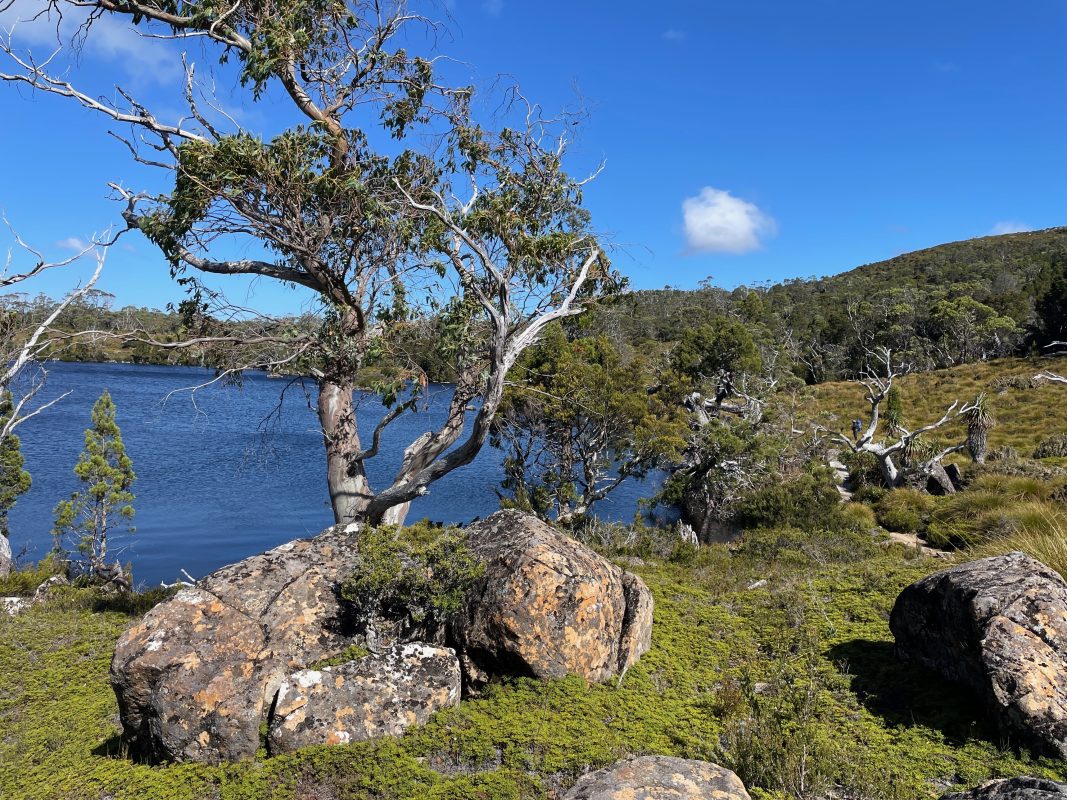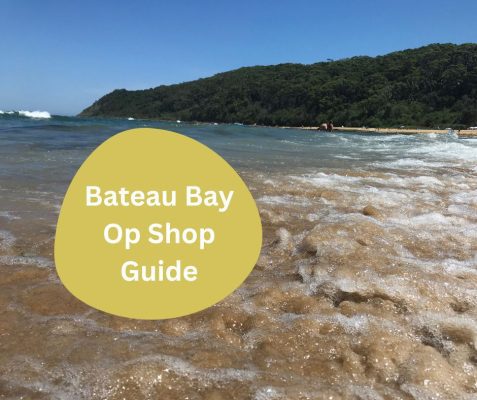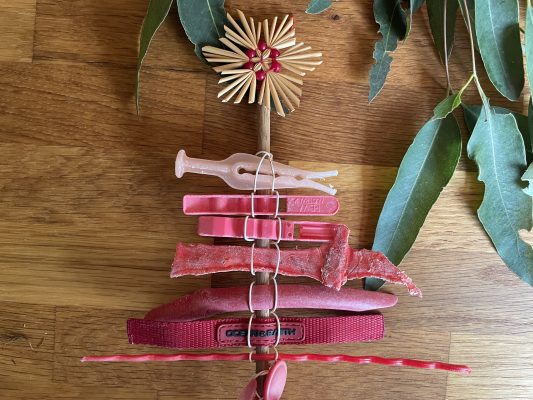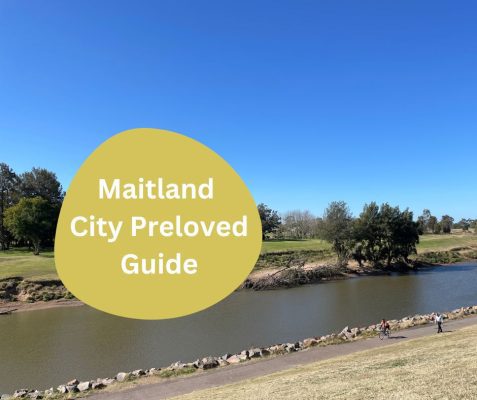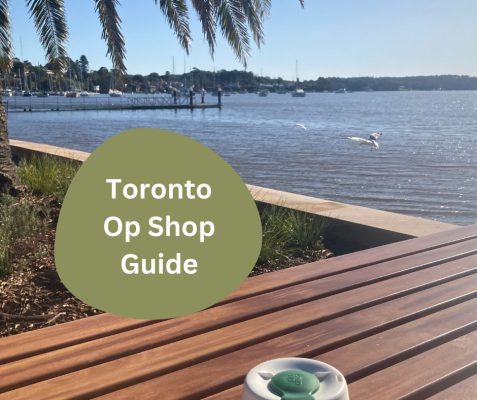Engaging with Nature
Connecting with Nature for Purposeful Sustainable Living
Intentionally connecting with nature for purposeful sustainable living helps set the foundation for understanding why we need to live mindfully. Since choosing the Newcastle region as our home city in 1999, there’s been a 25% increase in population growth over the last 25 years. This urbanisation, in addition to continual changes to all tiers of government legislation, and a heightened fear of risk to property means that our private land flora and fauna natural spaces have substantially diminished.
Connecting with the natural environment, from small pockets of outdoor space to the larger protected National Parks, is essential for finding the purpose behind treading lightly on our planet amidst urbanisation and environmental degradation. This helps us understand why we need to choose preloved, avoid disposables & plastics and support the liveability of our local community.
What’s My “Why” with Nature?
Understanding our ‘why’ with nature is essential for our everyday living, breathing and doing, helping to shape our actions and beliefs. By recognising the significance of nature, we create meaning and relevance to living sustainably and inspire others to join us in prioritising the conservation and preservation of our planet.
ReNewy Living believes in the enduring and interconnected relationship between people and our natural environment. We believe it’s imperative that we collaborate to respect life on earth as a living heritage and aim to leave a lasting nature-based legacy.
When we value the minutest connection with nature (hello little alpine flower) and big connections with nature (dwarfed by vast hills and mountains), we’re sharing our respect and wonder for what matters most – our blue and green planet.
How can we help save our planet when we’re removed from nature?
Here are three reasons why we need to value our natural connections:
1. Be More Conscious. Take Time to Stop and Smell the Roses
Roses aren’t always sweetly perfumed but that’s no reason why we shouldn’t pause to appreciate the beauty of the natural environment when we’re in it.
With my solo walks in the ‘burbs, I can “press pause” and “play” at any time. In smaller walking groups, I’m often the linger-longer person at the back, preferring to pace like a steady tortoise and observe the little things around me.
I’m captivated by the shapes, colours, flowers, and natural designs that help make up the bigger nature picture.
When we stop to observe, we notice more and in turn, care more about ourselves and our surroundings. What’s phrased as “pro-environmental behaviour” contributes to a stronger probability that we’ll adopt environmentally friendly behaviours and understand the positive impact it has on our lives. Tricia Walker is a Hunter Valley-based nature-connection writer & facilitator and highlights this ripple effect of connecting with nature and the positive influence it has on our daily decisions:
“The more time we spend in the natural world, the more we become conscious of being a part of the natural world and therefore are more likely to connect the decisions we make with the consequences”.
2. Stronger Personal Wellbeing. For a Happier & Healthier Planet
Moving between the comforts of home to the air conditioned comforts of the shops or office space, it’s easy to forget that everything we need is dependent on nature. As an avid outdoors person, Tricia reminds us of how our personal health and wellbeing is dependent upon the health of our natural environment.
There’s a plethora of peer-reviewed research about the positivity between connecting with the natural environment and our mental health.
Happiness, calm, joy, and creativity are the positive emotions and values that happen when we connect with nature. Bundled together, these positive emotions contribute to our greater sense of gratitude and wellbeing.
Looking after our personal wellbeing impacts upon the more global stewardship of our community and planet wellbeing.
That’s because when we take care of ourselves and are happier we’re more likely to take responsibility for places that matter to us, such as the natural environment. In turn, the more we connect with nature, the more we realise materialistic stuff is unnecessary and that we can survive well by consuming less. We can disrupt the “consumption” habit by connecting with nature.
When we have a stronger personal wellbeing for a happier and healthier planet, we’ll also have greater ability to be flexible, be more able to handle spontaneity and imperfection to be more resilient.
3. Improve our Personal Resilience. Experience Imperfection & Discomfort
Based on my experience as an early childhood teacher, learning from nature is best done by being in it. It’s only with experience and true connection that nature can teach us about imperfection and discomfort, to help us develop skills for how to cope with change.
Nature is a rich, dynamic environment, filled with known but unexpected elements of being outdoors – such as wind, rain, sun, heat, cold and creatures that can make us feel uncomfortable. Here are my two examples that happened on our eight-day Overland Track in Tasmania – a rugged, alpine-based multi-day hike, known for it’s weather extremes and unpredictability that demonstrates personal resilience in nature:
Two Steps Away…
In the excitement of discovering a grove of leatherwood trees deep into the walk, I forgot to snake-check the ground, which meant that I was two steps away from treading on a tiger snake! In a tizzy fright, both myself and the snake hurriedly departed the scene.
How did this discomfort experience show resilience? I quickly learned to adapt by changing my walking and watching behaviour, persist with the walk using more caution (there was no opt out), and learn from my snakey-snake encounter. This is snake territory and as a human, I was in their place and space.
100km/hr Wind Gusts
Day One of the Overland Track, was a challenging walk in 60km/h winds and 100km/h gusts. A combination of the intense wind and cold, plus not being able to talk with walking group buddies was exhausting.
How did this imperfect experience show resilience? Imperfect to our expectations only, we ‘adapted” with our prepared proper clothing for the extreme weather, we drew strength from each other from our shared experience, and maintained a positive outlook by having a deeper appreciation of the basics of safety, warmth, food and shelter to buoy us to overcome the weather obstacle, continue the journey and prioritise the living and surviving essentials. But more importantly, we’d do multi-day hiking again, which reflects a resilient attitude.
The hiking weather wasn’t perfect for our preferences, and the discomfort of meeting a snake was real. However, these collective stories of experiencing the natural environment in all its glory show how we need to have these times for us to feel more resilient. When we take time to step away from urbanisation, we’re allowing ourselves the chance to be uncomfortable and to help us be resilient when things aren’t fine and dandy.
The nature connection facilitator Tricia points out that “being uncomfortable reminds us that we need far less than we think we do. And that we are far more resilient than we think we are”.
Our personal resilience collectively contributes to developing a flexible and adaptable mindset to changing our behaviours for living lighter on the planet.
Protect the Benefits that Nature Gives to Us
Connecting with nature is a wonderful way to find meaning in living sustainably in our every day. By connecting with the natural environment, we are more conscious about our decisions, develop stronger positive personal wellbeing and improve our self-resilience.
We need to protect the benefits that nature gives to us. And we’re more likely to protect what we love. How can you have a stronger connection with nature, so you have a clear understanding for why we need to tread lighter on the planet?
Discover More…
- Related blogposts from ReNewy Living include my About page, in addition to discovering other people’s eco strengths in the community and seventy years of eco friendly living
#qbdbooks #etsy #sponsored I may receive a commission if you click on the links below and make a purchase.
- For books about resilience, and discovering awe and wonder in nature, these two Australian books The Resilience Project by Hugh van Cuylenburg and Phospheresence by Julia Baird are inspirational and worthwhile reads (#qbdbooks #sponsored)
- Start with Why by Simon Sinek is a business read, but also makes sense when reading it for personal learning
- And The 5 Minute Journal is an absolute game changer in finding thankfulness in the small things – available as a book or a digital download globally through #etsy (#sponsored)
Stories, News & Voices
Sharing stories that strengthen our commitment to nature, community, and a healthier planet.

